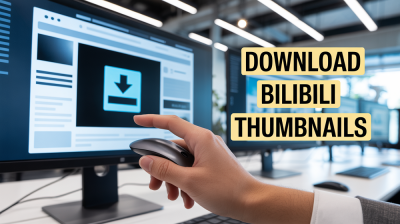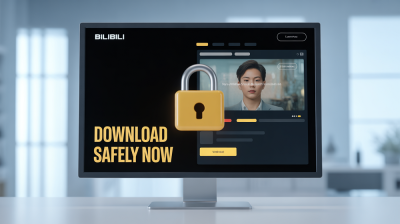Introduction: The Importance of Visibility on eBay
In the bustling bazaar of
eBay, where thousands of sellers vie for attention, standing out can feel like a Herculean task. I've been there myself, grappling with the challenge of getting my listings noticed amid a sea of competition. Visibility isn’t just a nice-to-have; it’s essential. Without it, even the most fantastic products can remain hidden from potential buyers. In this post, we’ll explore practical tips and strategies that can make your listings shine brightly in the
eBay marketplace.
1. Optimize Your Listing Titles

Your title is your first impression—make it count. When I first started selling on
eBay, I was amazed at how much difference a well-crafted title could make. Imagine your title as a beacon that guides buyers to your product. Here’s how to make yours stand out:
- Be Specific: Include key details like brand, size, color, and condition. For example, instead of "Shoes for Sale," use "Nike Air Max Size 10, Black, New Condition."
- Use Relevant Keywords: Think about the words buyers might use to search for your item. Incorporate these keywords naturally into your title.
- Keep It Concise: eBay allows up to 80 characters in your title. Use this space wisely, but avoid cluttering it with unnecessary words.
- Avoid Special Characters: Stick to letters and numbers. Special characters can be misinterpreted by eBay’s search algorithms.
By following these tips, you can significantly improve the chances of your listing appearing in search results, attracting more eyes to your product.
2. Craft Compelling Descriptions
Once your title grabs attention, your description needs to seal the deal. I remember a time when I used to write descriptions just as a formality. But over time, I realized that a well-crafted description can make a huge difference in convincing a buyer. Here’s how to create a description that resonates:
- Be Detailed: Describe your item thoroughly. Include dimensions, features, and any imperfections. Transparency builds trust.
- Highlight Benefits: Instead of just listing features, explain how they benefit the buyer. For example, “The ergonomic handle ensures comfortable use even during long periods.”
- Use Bullet Points: Break down information into easy-to-read bullet points. This makes it simpler for buyers to find key details quickly.
- Incorporate Keywords: Just like with your title, use relevant keywords throughout your description to enhance search visibility.
- Include a Personal Touch: Share a bit about your experience with the product or why you’re selling it. Personal anecdotes can make your listing feel more genuine and relatable.
Remember, a compelling description doesn’t just inform; it also persuades. It should make buyers feel confident and excited about their purchase.
3. High-Quality Images Are a Must
When I first ventured into selling on
eBay, I underestimated the power of high-quality images. A blurry or poorly lit photo does more harm than good. Imagine walking into a store where the products are hidden in shadows or under neon lights—how likely are you to buy? Your
eBay listing is no different. Here’s how to ensure your images stand out:
- Use Natural Light: Aim for natural light whenever possible. It makes your product look more appealing and true to its actual color.
- Show Multiple Angles: Provide images from various angles—front, back, sides, and close-ups of any unique features or flaws. This gives buyers a comprehensive view of what they’re purchasing.
- Maintain High Resolution: Use a high-resolution camera to ensure your images are sharp and detailed. Avoid zooming in on blurry images; instead, take a new photo.
- Include Contextual Shots: Show your item in use or within a relatable setting. For instance, if you’re selling a dress, include a picture of it being worn or displayed on a mannequin.
- Edit Wisely: Basic editing to adjust brightness or crop unnecessary parts is fine, but avoid altering colors or adding filters that might mislead buyers.
Good images can significantly boost buyer confidence and increase your chances of making a sale. They bridge the gap between an online listing and the tactile experience of seeing the product in person.
4. Utilize eBay’s Listing Tools
eBay offers a range of tools designed to help sellers like you maximize their listing’s potential. When I first started, I didn’t fully appreciate these features, but they’re game changers. Here’s a rundown of the tools you should be taking advantage of:
- Title and Description Templates: Use eBay’s templates to create professional-looking listings. These templates ensure you include all necessary details and follow best practices.
- Promotional Listings: Utilize eBay’s promotional tools to boost your listings. Options like “Promoted Listings” allow you to pay for higher visibility in search results.
- Image Galleries: eBay provides options to upload multiple images and create a gallery for each listing. This feature helps showcase your product from all angles.
- Pricing Tools: Tools like “Best Offer” enable you to accept offers and negotiate prices with buyers, which can lead to quicker sales.
- Shipping Tools: eBay’s shipping tools help you manage shipping costs and options. Use these to offer calculated shipping rates or print labels directly from the platform.
By leveraging these tools, you can streamline your selling process, attract more buyers, and ultimately, increase your sales. Don’t overlook these resources—they’re designed to make your
eBay journey smoother and more profitable.
5. Price Your Items Competitively
Pricing can be a delicate balancing act. I remember when I first listed my products on eBay, I struggled to find that sweet spot between profitability and attractiveness. Pricing too high can scare off buyers, while pricing too low might undervalue your product. Here’s how to strike the right balance:
- Research Competitors: Check similar listings on eBay to gauge the average market price for your item. This will help you position your price competitively.
- Consider Condition: Price according to the condition of your item. New or like-new items can command higher prices, while used or refurbished items should be priced lower.
- Factor in Costs: Don’t forget to include all costs such as shipping, eBay fees, and any other expenses. Your final price should cover these costs while still offering value to buyers.
- Offer Discounts: Periodic sales or discounts can attract more buyers. For instance, consider offering a discount for bulk purchases or during special promotions.
- Use Auctions Wisely: For unique or highly sought-after items, auctions can be a great way to drive up the price. Just make sure to set a reasonable starting bid.
Effective pricing can make or break your eBay success. By researching and setting a price that reflects both market conditions and your costs, you can attract buyers and ensure a healthy profit margin.
6. Leverage eBay Promotions and Discounts
When I first started selling on eBay, I didn’t fully grasp the power of promotions and discounts. It wasn’t until I ran my first sale that I realized how these tools could dramatically increase my visibility and sales. eBay offers several promotional options that can be game-changers for your listings. Here’s how to use them effectively:
- Promoted Listings: This feature allows you to pay for increased visibility in search results. Your listing will appear higher and more prominently, which can lead to more clicks and sales. Start with a modest budget and adjust based on performance.
- Markdown Manager: Create sales and discounts to attract buyers. You can set up time-limited promotions to create a sense of urgency. For example, “20% off all items this weekend only!”
- Volume Pricing: Offer discounts for bulk purchases. This encourages buyers to buy more, which can increase your overall sales. For instance, “Buy one, get the second at 10% off.”
- Coupons: Distribute digital coupons to attract new buyers or reward repeat customers. You can customize the amount and terms, like “$5 off your next purchase over $50.”
- eBay Deals: Participate in eBay’s “Deals” section for additional visibility. Items in this section often receive a boost in traffic, leading to quicker sales.
Utilizing these promotional tools can make your listings stand out and help you reach more potential buyers. It’s a great way to drive traffic and enhance your eBay selling experience.
7. Engage with Buyer Questions Promptly
One of the most memorable moments in my eBay selling journey was when I responded quickly to a buyer's question about an item. The buyer was so impressed with my promptness that they ended up making a purchase. Engaging with buyer questions is more than just good practice; it’s essential for building trust and closing sales. Here’s why timely responses matter and how to manage them:
- Builds Trust: Quick responses show buyers that you are active and reliable. It makes them feel valued and more confident in their purchase.
- Reduces Buyer Anxiety: Addressing concerns or clarifying doubts promptly can prevent potential buyers from abandoning their carts due to uncertainty.
- Boosts Your Reputation: Excellent customer service is often rewarded with positive feedback. Consistently engaging with buyers can enhance your seller rating and reputation.
- Stay Organized: Set up notifications on your phone or email for buyer questions so you can respond as soon as they come in. Use eBay’s messaging system to keep all communications in one place.
- Provide Detailed Answers: When responding, be thorough and clear. Include any relevant information that might help the buyer make an informed decision.
Remember, engaging promptly with buyer questions not only helps in making a sale but also in creating a positive shopping experience that buyers will remember.
8. Track and Analyze Your Listing Performance
When I first started selling on eBay, I didn’t pay much attention to performance metrics. It wasn’t until I began tracking and analyzing my listings that I truly understood what worked and what didn’t. Monitoring your listing performance is crucial for continuous improvement and increased sales. Here’s how to effectively track and analyze your listings:
- eBay Seller Hub: Use eBay’s Seller Hub to access detailed performance reports. It provides insights into views, sales, and conversion rates, which are essential for evaluating your strategies.
- Review Listing Views and Click-Through Rates: Analyze how many times your listings are viewed and how often buyers click on them. Low click-through rates might indicate that your titles or images need improvement.
- Monitor Sales Data: Track which items are selling well and which aren’t. Understanding your bestsellers and slow movers can help you make informed decisions about inventory and pricing.
- Assess Customer Feedback: Regularly review buyer feedback and ratings. This can provide valuable insights into what customers appreciate and where you might need to improve.
- Adjust Based on Data: Use the insights gained from tracking to tweak your listings. Experiment with different strategies, such as changing your pricing or updating your images, based on what the data tells you.
By keeping a close eye on your performance metrics, you can make data-driven decisions that will enhance your listings, attract more buyers, and ultimately boost your eBay success.
FAQs
As you navigate the world of eBay selling, you might have a few burning questions. Having been through the ups and downs of eBay myself, I’ve gathered some common queries and their answers to help you along the way:
How do I improve my eBay search ranking?
- Optimize your titles and descriptions with relevant keywords, use high-quality images, and consider using eBay’s promotional tools to boost your listing’s visibility.
What should I do if my listing isn’t getting any views?
- Review your listing’s title and description for clarity and relevance. Check if your images are appealing and make sure your pricing is competitive.
How often should I update my listings?
- Regular updates are key. Revisit your listings every few weeks to adjust prices, update photos, or tweak descriptions based on performance and feedback.
Can promotions really make a difference?
- Yes, they can! Running promotions and discounts often leads to increased traffic and can create a sense of urgency, encouraging buyers to make a purchase.
What’s the best way to handle buyer questions?
- Respond promptly and thoroughly. Being attentive and providing clear, honest answers builds trust and can help seal the deal.
Conclusion: Enhancing Your eBay Success Through Visibility
Increasing your eBay visibility isn’t just about standing out; it’s about connecting with buyers in a meaningful way. From optimizing titles and descriptions to leveraging eBay’s promotional tools and engaging with customers, each step plays a crucial role in boosting your presence on the platform. I’ve learned from experience that success on eBay comes from a combination of strategic planning and genuine customer engagement.As you apply these tips, remember that consistency and continuous improvement are your allies. Monitor your performance, adapt your strategies, and keep an eye on evolving trends. With dedication and a bit of creativity, you can transform your eBay listings into a beacon that attracts buyers and drives sales. Here’s to your eBay success—may your listings shine brightly and your sales soar!
 Your title is your first impression—make it count. When I first started selling on eBay, I was amazed at how much difference a well-crafted title could make. Imagine your title as a beacon that guides buyers to your product. Here’s how to make yours stand out:
Your title is your first impression—make it count. When I first started selling on eBay, I was amazed at how much difference a well-crafted title could make. Imagine your title as a beacon that guides buyers to your product. Here’s how to make yours stand out:
 admin
admin








